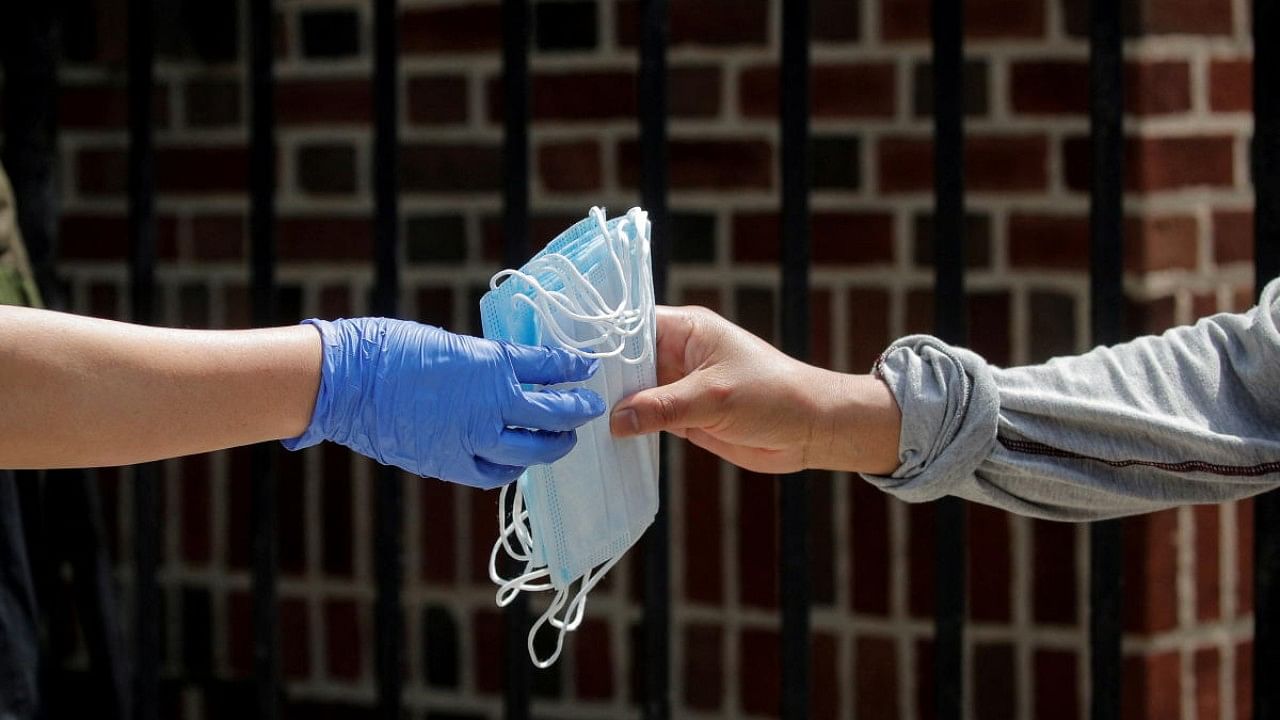
The effectiveness of face masks has been a hotly debated topic since the emergence of Covid-19. However, a new study shows that masks could also help reduce social distancing.
Researchers at the University of Central Florida (UCF) found that face masks reduce the distance airborne pathogens could travel, when speaking or coughing, by more than half compared to not wearing a mask.
The findings, appearing in the Journal of Infectious Diseases, are important as airborne viral pathogens, such as SARS-CoV-2, can be encapsulated and transmitted through liquid droplets and aerosols formed during human respiratory functions such as speaking and coughing.
Also Read | Mask up India, Omicron is far from benign
Knowing ways to reduce this transmission distance can help keep people safe and aid in managing responses to pandemics, such as Covid-19, which has resulted in global-scale infection, health care system overloads, and economic damage.
These responses could include relaxing some social distancing guidelines when masks are worn.
"The research provides clear evidence and guidelines that three feet of distancing with face coverings are better than six feet of distancing without face coverings," said Kareem Ahmed, Associate Professor in UCF's Department of Mechanical and Aerospace Engineering.
Using diagnostic tools commonly used for understanding how fluids move through the air, the researchers measured the distance in all directions that droplets and aerosols travel from people speaking and coughing, when wearing different types of masks and when not.
In the study, 14 people participated: 11 males and three females, aged 21 to 31.
Each participant recited a phrase and simulated a cough for five minutes without a face-covering, with a cloth face covering, and with a three-layered disposable surgical mask.
The researchers found that a cloth face-covering reduced emissions in all directions to about two feet compared to the four feet of emissions produced when coughing or speaking with no mask on.
The reduction was even greater when wearing a surgical mask, which reduced the distance coughing and speaking emissions travelled to only about half a foot.
Check out the latest videos from DH: